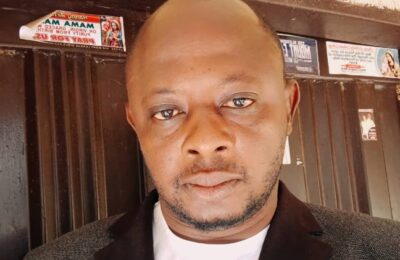Life is not a straight highway paved with roses; it is a labyrinth of turns, an unfinished manuscript where each soul writes a paragraph with tears, laughter, and scars. Too often, men fall into the temptation of comparison — weighing their journey against another, forgetting that destinies, like fingerprints, are never identical. As the Nigerian cleric Pastor Inah Stephen Eyiene once cautioned, “The tragedy of misplaced expectation is that it generates frustration faster than failure itself.” Indeed, life is not a competition of footsteps but a pilgrimage of unique burdens.
In our age of scrolling screens and curated images, envy has become the silent plague of our generation. A young graduate, unemployed yet scrolling endlessly through social media, compares his hunger with another man’s banquet, forgetting that the latter’s table may have been set after long years of famine. The Igala proverb says, “The yam that sprouts late will still feed the household when the early yam is finished.” Experience, unlike advice, cannot be borrowed. One may glean lessons from another’s story, but the actual heat of the furnace is borne alone. To compare is to insult the artistry of divine design.
Yet the second truth of this unwritten curriculum is that pain does not always spell disaster. A woman groaning in labour is not cursed; she is crowned. A seed pressed under the soil is not buried; it is planted. The Stoic philosopher Seneca once wrote, “Difficulties strengthen the mind, as labour does the body.” In the same breath, Dr. Ngozi Ibekwe, a Lagos-based psychologist, observed: “That something is rough does not mean you are wrong. The presence of pain may simply be proof that growth is underway.” Tears and laughter are twin tutors in the academy of existence. The cry makes the smile sacred. The broken night makes the morning sun a festival.
But nowhere is life’s crucible more evident than in parenting. To hold a child is to be enrolled in a compulsory course in humility. One must learn to erase selfishness, for children are mirrors that reflect both our virtues and our vanities. “Having a child is a divine way to deal with selfishness,” said Faith Alabi, a mother in Port Harcourt. “Parents must cooperate, not compete. Sacrificial love does not count costs or keep scores.” The child does not thrive in an atmosphere of rivalry; he thrives where father and mother surrender their egos for the sake of posterity. Parenting is not a project of convenience but of covenant. It is a lifelong reminder that love is not arithmetic — it cannot be measured in halves and wholes; it is an endless pouring.
The irony, however, is that even the smallest ripple in attitude can spread like a tidal wave across a family, a workplace, or a nation. Stress is contagious, and so is serenity. A leader who walks into a room with storm on his face releases thunder into the souls of his followers. A teacher who greets a class with joy fertilizes the soil of learning. Leadership trainer Samuel Adeniran notes: “Your attitude is not private. It is atmospheric.” To govern one’s countenance is to govern one’s kingdom. To lose composure is to license chaos.
Still, of all the gems in this hidden curriculum, perhaps the rarest is the reminder that time is a gift that dissolves once unwrapped. The late Myles Munroe once warned, “The wealthiest place on earth is the graveyard, where unfinished dreams are buried.” Treasure each moment, for hours squandered are irretrievable. Evangelist Yinka Yusuf thundered in Lagos: “God has already given you what it takes for the task — but you must live it now, not tomorrow.” Tomorrow is a mirage. Today is the currency of eternity.
The Igbo say, “When the moon is shining, it is foolish to search for a torch.” In other words, when the moment is present, embrace it. Many live imprisoned by nostalgia of yesterday or anxiety for tomorrow, and in so doing, they crucify the gift of now. Time is the one river that flows in one direction. To resist its current is to drown in regret.
Thus, when these five truths converge — the futility of comparison, the purpose of pain, the humility of parenting, the contagion of attitude, and the gift of time — we glimpse the architecture of a higher wisdom. Life is a paradox: joy mingles with sorrow, progress comes through struggle, and the unseen hands of providence weave triumphs out of trials.
In Idah, an aged Igala elder once murmured as he watched the sunset: “The man who knows that both rain and sunshine feed the farm is never dismayed by the storm.” That is the lesson of existence — every bruise, every laugh, every delay is part of a grand syllabus authored by God Himself.
The world, restless and hurried, is in desperate need of this philosophy. For if individuals can learn to endure pain without despair, to parent without pride, to lead with calmness, and to honor time as sacred, then perhaps society will rediscover the ancient equilibrium it has lost.
Life’s unwritten curriculum demands no registration fee; it admits every living soul. Its teachers are pain, humility, patience, and love. And its ultimate diploma is wisdom — a wisdom that whispers in the chaos: “You have what it takes, but you must walk your own road.”
– Inah Boniface Ocholi writes from Ayah – Igalamela/Odolu LGA, Kogi state.
08152094428 (SMS Only)




